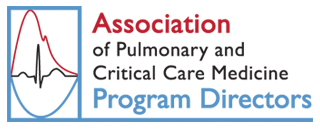2024 APCCMPD Annual Conference
|

|
BREAKOUT SESSIONS
February 29, 2024
Las Vegas, NV
|
Breakout Sessions are intended for a LIVE audience only
Learn More and Register for the 2024 APCCMPD Annual Conference
Community-Based Fellowship Program Forum
Ernest K. DiNino, MD
UMass Chan Medical School-Baystate
Kathleen Doo, MD, MHPE
Kaiser Permanente Northern California
Amee S. Patrawalla, MD, MPH
Rutgers New Jersey Medical School
|
SESSION DESCRIPTION
This forum is designed for program leaders of community-based programs and community/university-affiliated programs to come together. The session aims to provide an opportunity for networking with peers who oversee programs with similar structures. Additionally, participants will be able to discuss common challenges and share best practices to address these challenges.
SESSION OBJECTIVES
At the conclusion of this session participants should be better able to:
1. Identify challenges unique to community-based programs and community/university-affiliated programs.
2. Share best practices for the administration of community-based programs and community/university-affiliated fellowship programs.
Using Apparent Cause Analysis to Improve Morbidity & Mortality Conference: A Curriculum for PCCM and CCM Fellows
Kinsley Hubel, MD
Sherie Gause, MD
Shewit Giovanni, MD, MS
Tameka Smith, MD
Oregon Health & Science University
|
SESSION DESCRIPTION
Morbidity and mortality (M&M) conference is often used as the cornerstone of fellowship patient safety education. Unfortunately, the structure, quality and educational experience associated with conducting an M&M conference can vary widely. Furthermore, it can be difficult for program directors to translate fellow run M&M conferences into a standardized milestone evaluation. The goal of this session is to share our approach to improving the educational experience, quality and standardization of M&M conference using an abbreviated form of root cause analysis called apparent cause analysis. We will use a train-the-trainer methodology and invite session participants to experience our curriculum through a simulated case. We will demonstrate how we train fellows to effectively analyze system-based and diagnostic root causes of errors, and ultimately use this knowledge to present at divisional morbidity and mortality conferences in a standardized and in-depth manner. We will share our curriculum, morbidity and mortality presentation template, and a novel grading rubric for morbidity and mortality conference that can be used to help assess systems-based practice (SBP-1) milestone.
SESSION OBJECTIVES
At the conclusion of this session participants should be better able to:
1. Describe a patient safety curriculum that can be implemented in a PCCM and CCM fellowship training program.
2. Practice using tools to teach fellows about error reporting and completing root cause analyses (RCAs).
3. Discuss barriers and consider solutions to incorporating patient safety curricula into PCCM and CCM fellowships.
Incorporating Health Equity, Diversity, Inclusion (EDI) into Simulation-Based Medical Education: An Interactive Case-Based Workshop
Deepak Pradhan, MD, MHPE
Mark H. Adelman, MD
Jennifer Whealdon, MD
New York University Grossman School of Medicine
|
SESSION DESCRIPTION
The COVID-19 pandemic has heightened attention to existing inequities in our healthcare system and their impacts on patient outcomes, highlighting the important and urgent need for trainee education to address these challenges. Simulation has emerged as an effective method for practicing health equity, diversity, and inclusion (EDI) skills within a supportive and psychologically safe environment focused primarily on the learner. However, simulation educators often lack practical guidance on integrating EDI concepts into simulation-based education, resulting in uncertainty. To address this unmet need, we propose an interactive workshop where we introduce a framework (SIM-EDI) to assist medical educators in incorporating an EDI framework into simulation-based curricula, allowing them to gain confidence and encourage reflection by providing an opportunity to revise simulation cases.
SESSION OBJECTIVES
At the conclusion of this session participants should be better able to:
1. Recognize the key elements of health equity, diversity, and inclusion that can be effectively incorporated into simulation-based medical education.
2. Acquire the skills to revise the design, delivery, and debriefing of existing simulation-based cases by incorporating elements of health equity, diversity, and inclusion.
3. Assess their simulation redesigns for health equity, diversity, and inclusion concerns through guided feedback.
Implementing a Teaching Assessment Committee for Core Clinical Faculty Evaluation
Brent Bagley, MD
Gabriel Bosslet, MD, MA
Laura Hinkle, MD, MEd
Indiana University School of Medicine
Jennifer McCallister, MD
The Ohio State University College of Medicine
Rachel Quaney, MD, MAEd
University of Colorado Anschutz School of Medicine
|
SESSION DESCRIPTION
Timely, high-quality feedback is an essential component of lifelong learning. Formal processes in the form of Clinical Competency Committees (CCCs) facilitate the provision of this feedback to graduate medical education trainees, however mechanisms to provide similar high-quality feedback on teaching to faculty are not well defined. Teaching Assessment Committees comprised of all fellow level trainees have been designed and implemented at a few programs around the country to provide this same level of high-quality, consensus-based feedback for core clinical faculty members. The committee, moderated by chief fellows, evaluates all core clinical faculty members annually using educational milestones and generates consensus feedback to support each faculty member’s scores. This session is designed to share the experience of two institutions with the implementation of this new committee, including successes and things we plan to do differently, and to give participants an idea of how to implement such a committee at their home institution.
SESSION OBJECTIVES
At the conclusion of this session participants should be better able to:
1. Summarize the experience of our institutions with the creation of a teaching assessment committee.
2. Describe the iterative process of developing and implementing a teaching assessment committee, including potential pitfalls during the implementation phase.
3. Identify anticipated institutional hurdles and perceived programmatic benefits at your home institution.
Remediation of Professionalism Lapses: Expanding Your Toolkit
Keriann Van Nostrand, MD
University of South Florida Morsani
Saadia A. Faiz, MD
Mark T. Warner, MD
University of Texas Health Science Center at Houston
|
SESSION DESCRIPTION
Professional organizations and leaders in medicine have defined the fundamental principles of medical professionalism. Yet the literature indicates that unprofessional behaviors are common. Multiple assessment tools exist to assess professional behavior but have limited value in the improvement of the behavior. Lapses in professionalism can occur during training and these can be difficult and challenging to discuss, remediate and document. Lapses in professionalism is a spectrum and the remediation strategy is not one size fits all. Program directors and members of the training program are faced with teaching and modeling professionalism but also with remediation of professionalism lapses. This session will focus on helping to identify professionalism lapses, tools to develop remediation strategies and methods for documentation.
SESSION OBJECTIVES
At the conclusion of this session participants should be better able to:
1. Identify lapses in professionalism in trainees.
2. Develop strategies to formulate individualized remediation plan for trainees.
3. Understand how and what information to document for professionalism lapses.
4. Analyze professionalism lapses that should be reported on fellowship verification forms.
Building Your Coaching Toolbox: Skills to Promote Self-Efficacy Amongst Trainees
Tanzira Zaman, MD
Cedars-Sinai Medical Center
Anna Neumeier, MD
University of Colorado Anschutz School of Medicine
Daniel B. Jamieson, MD
MedStar Georgetown University Hospital
|
SESSION DESCRIPTION
Coaching is a distinct approach to promoting professional development in our trainees. In certain instances, this approach may be more effective than mentoring or advising. The directive approach of mentorship and advising follow naturally from faculty members' experiences. The specific skills of the coaching approach, however, are not commonly taught or necessarily intuitive, but they can be learned. During this interactive workshop, participants will develop and apply specific coaching skills to promote trainees’ self-efficacy.
SESSION OBJECTIVES
At the conclusion of this session participants should be better able to:
1. Identify features of coaching for professional development that are unique from mentorship and advising.
2. Define self-efficacy and its relation to a growth mindset.
3. Develop the discreet coaching skills of recognition of thought distortions and strategic use of non-directive questioning.
Walking the Walk: Practical Recruitment & Retention Strategies to Diversify Your Fellowship Program
Laura Hinkle, MD, MEd
Indiana University School of Medicine
Lekshmi Santhosh, MD, MAEd
University of California San Francisco
Jaime Palomino, MD
Tulane University School of Medicine
Başak Çoruh, MD
University of Washington
|
SESSION DESCRIPTION
Health care disparities result in lower health-related quality of life for minoritized populations. Research has shown that a diverse healthcare team can reduce healthcare disparities and improve patient satisfaction and adherence to treatment plans. Diversification of the workforce mandates a multilayered approach, with one layer involving an increase in underrepresented in medicine (URIM) individuals accepted into fellowship training programs. The importance of this is well recognized by the Accreditation Council for Graduate Medical Education, which mandates “mission driven, ongoing, systematic recruitment and retention of a diverse and inclusive workforce.” This session will provide highlight the personal, programmatic, institutional, and societal strategies and provide attendees with strategies to implement at their own institutions to diversify their fellowship training programs.
SESSION OBJECTIVES
At the conclusion of this session participants should be better able to:
1. Reflect on the importance of diversity in fellowship training programs.
2. Leverage institutional assets to improve trainee diversity.
3. Implement recruitment strategies that improve the diversity of fellowship training programs.
|

